Pain, shame and silence: Four films about sexual abuse
The San Sebastián Film Festival in Spain addresses rape’s painful imprint on families and society
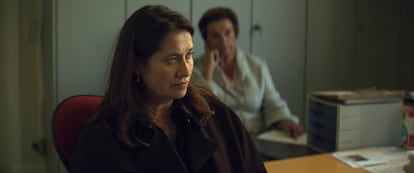

François is a prestigious, wealthy lawyer, with a pristine image as a defender of children. But behind closed doors, he hides a monster who has spent 30 years convincing his wife that he is controlling his impulses. Three decades ago, he raped a boy over a year and a half. Every night he stays in his luxurious house to watch child pornography, justifying himself with the cases he investigates. Joachim Lafosse, a little-known Belgian filmmaker, thus starts A Silence, a film now competing at the San Sebastián Film Festival in Spain. The silence in the title is not that of the lawyer, but that of his wife — a victim or an accomplice? — who does not realize what her young son is learning from his father. A similar reflection on brutal legacies appears in Kalak, by the Swede Isabella Eklöf, also in the San Sebastián contest, as well as The Successor, by the Frenchman Xavier Legrand, on the remains of the shipwreck left by a similar predator. The festival is also screening Quitter la nuit, by the Canadian Delphine Girard, who illustrates how an incident of sexual abuse committed in a car is seen differently by the victim and by the perpetrator. Together, the four films evoke a pessimistic feeling about the advance of darkness in today’s society.
In Belgium, the story of the pedophile wolf in the sheep’s clothing of a child protection activist gripped the country 15 years ago, when it came to light what the lawyer of two pedophilia victims was hiding. “I was not so interested in that as in the impact of his actions on his family, especially on his wife,” says Lafosse in San Sebastián. “The eldest daughter, when she finds out what happened, pushes her to report it. The young son is lost… And her? I was interested in delving into someone from another generation, who lives crushed by shame. For me, she is not an accomplice, but another victim, collateral damage, if you will, of the pedophile. Sometimes we are not aware of how difficult it is to speak, to report, for victims of sexual crimes.”
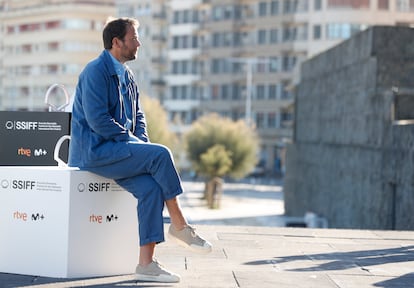
This paradox — of suffering a crime and then traveling a treacherous path to prove it — makes up the heart of Quitter la nuit. It is an adaptation of Girard’s short film A Sister, which was nominated for an Oscar in 2020. After a night of partying, a man and a woman get into a car together. They leave the vehicle with completely different memories of what happened. She faces a string of tests to confirm what happened and receives reproaches for her behavior. He also sees his world shake, although his memory deceives him. “Even today, it is easier to report a robbery than a rape. It is systemic discrimination, because even if it is a female police officer, the system goes against [the victims],” says Girard.

As Lafosse says, “we forget that if as a society we prejudge or pressure victims, the response is usually silence.” In his film, furthermore, “generational differences provoke different responses.” For the Belgian, the key is in #MeToo. “Women before #MeToo may not have been taught to speak up.”
In A Silence, the perpetrator’s emotional legacy creeps into the behavior of the youngest son. “For him, who sees his father as a hero, just like the rest of the community, repeating his same behavior has some continuity. That teenager understands that there is a moral limit, and at the same time he has grown up in a family in which this behavior is understood as an illness in treatment,” explains the director. “Who should be his compass? The mother, played by Emmanuelle Devos. Who does he focus on? The father,” played by Daniel Auteuil. “That behavior ultimately pushes the mother to speak.”

The protagonist of Kalak was sexually abused by his father when he was a teenager in Copenhagen. After migrating to Greenland, Jan, married with two children, develops erratic emotional behavior caused by the weight he has carried since his adolescence. “If you try something over and over again and keep banging your head against the wall, it’s probably a good idea to try a new direction in life, but sometimes it takes a lot of pain and desperation to break the incredibly strong bonds of emotional habits,” explains Isabella Eklöf. Kalak means “dirty Greenlander,” because that is what Jan longs for: to be accepted by a big family. “There are many taboos regarding sexual trauma in men, not to mention that their emotional relationships are poisoned by what they have experienced. And if it is not faced, it cannot be cured,” says the Swedish director.
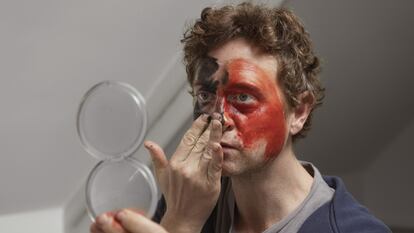
After his first film, Custody (2017), about sexist violence within families, the Frenchman Xavier Legrand presented this Tuesday at the San Sebastián competition The Successor, in which a successful fashion designer, the new creative head of a renowned brand, has to return from Paris to his native Quebec when his father dies of a heart attack. “He was an emotional deserter. He fled to save his neck,” says the director. The protagonist discovers the remains of his father’s monstrous past. “It is a portrait of patriarchy, and we have to remember that patriarchy is also a threat to boys. Sexist violence also affects men,” Legrand explains.
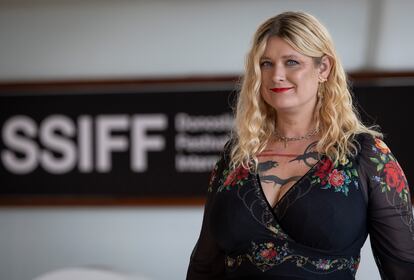
Lafosse, Legrand and Eklöf agree on the legacy of sexual abuse: “This violence can be explained by having suffered what has been suffered, but it can never be justified.” Legrand delves into the shame that it leaves the children: “It is a painful, complex emotion to assume and swallow. And there is another kind of shame, the one felt by men in this current society. At least I do feel it. It bothers me, for example, that women earn less than us, or the silence of young men in the face of certain atrocities. That’s what my film is about: why don’t men talk more? Why don’t men try to change things? Because many people benefit from things being this way.”
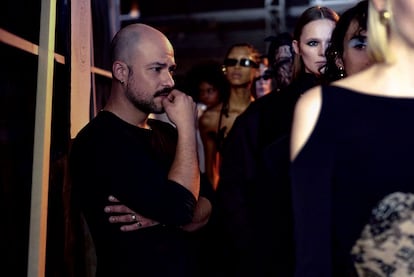
Sign up for our weekly newsletter to get more English-language news coverage from EL PAÍS USA Edition
Tu suscripción se está usando en otro dispositivo
¿Quieres añadir otro usuario a tu suscripción?
Si continúas leyendo en este dispositivo, no se podrá leer en el otro.
FlechaTu suscripción se está usando en otro dispositivo y solo puedes acceder a EL PAÍS desde un dispositivo a la vez.
Si quieres compartir tu cuenta, cambia tu suscripción a la modalidad Premium, así podrás añadir otro usuario. Cada uno accederá con su propia cuenta de email, lo que os permitirá personalizar vuestra experiencia en EL PAÍS.
¿Tienes una suscripción de empresa? Accede aquí para contratar más cuentas.
En el caso de no saber quién está usando tu cuenta, te recomendamos cambiar tu contraseña aquí.
Si decides continuar compartiendo tu cuenta, este mensaje se mostrará en tu dispositivo y en el de la otra persona que está usando tu cuenta de forma indefinida, afectando a tu experiencia de lectura. Puedes consultar aquí los términos y condiciones de la suscripción digital.








































